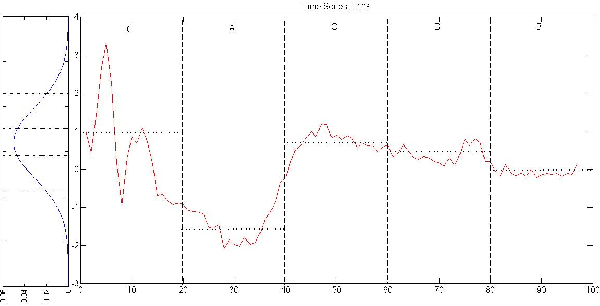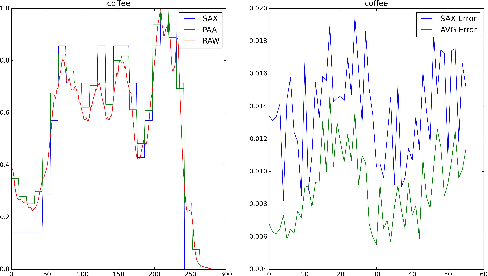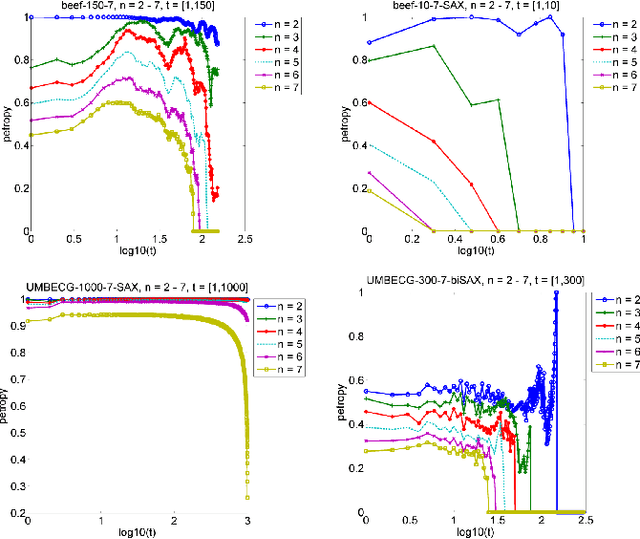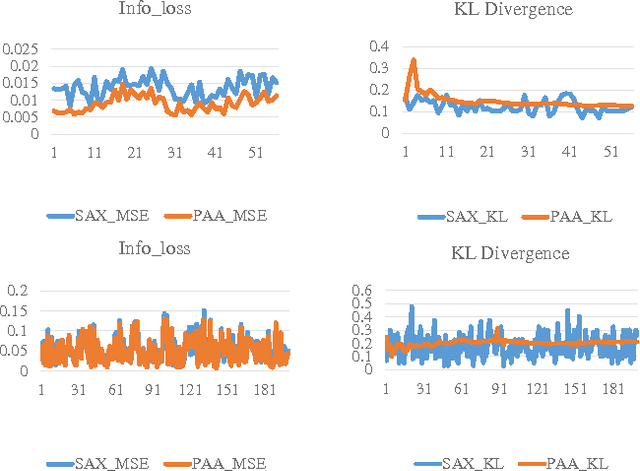Empirical Studies on Symbolic Aggregation Approximation Under Statistical Perspectives for Knowledge Discovery in Time Series
Paper and Code
Jun 08, 2015



Symbolic Aggregation approXimation (SAX) has been the de facto standard representation methods for knowledge discovery in time series on a number of tasks and applications. So far, very little work has been done in empirically investigating the intrinsic properties and statistical mechanics in SAX words. In this paper, we applied several statistical measurements and proposed a new statistical measurement, i.e. information embedding cost (IEC) to analyze the statistical behaviors of the symbolic dynamics. Our experiments on the benchmark datasets and the clinical signals demonstrate that SAX can always reduce the complexity while preserving the core information embedded in the original time series with significant embedding efficiency. Our proposed IEC score provide a priori to determine if SAX is adequate for specific dataset, which can be generalized to evaluate other symbolic representations. Our work provides an analytical framework with several statistical tools to analyze, evaluate and further improve the symbolic dynamics for knowledge discovery in time series.
 Add to Chrome
Add to Chrome Add to Firefox
Add to Firefox Add to Edge
Add to Edge